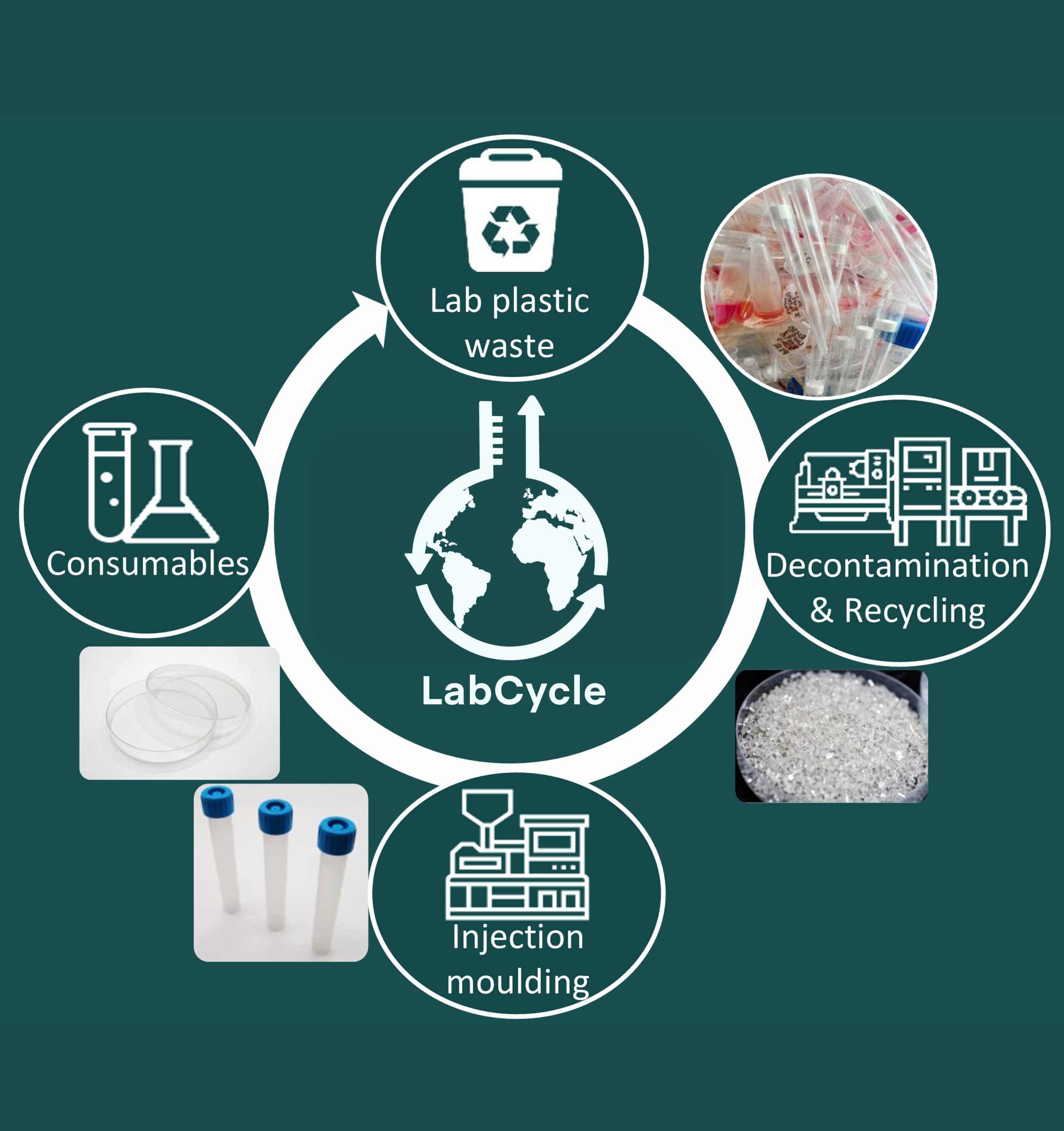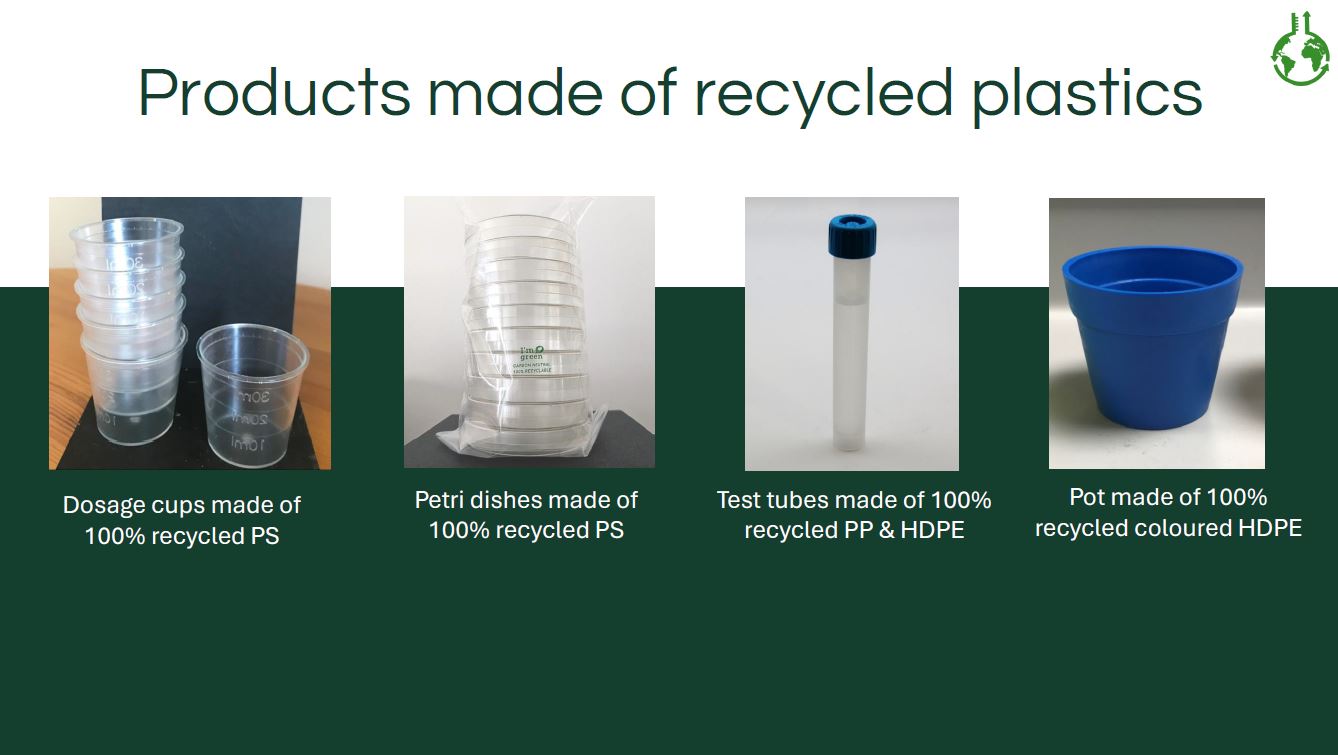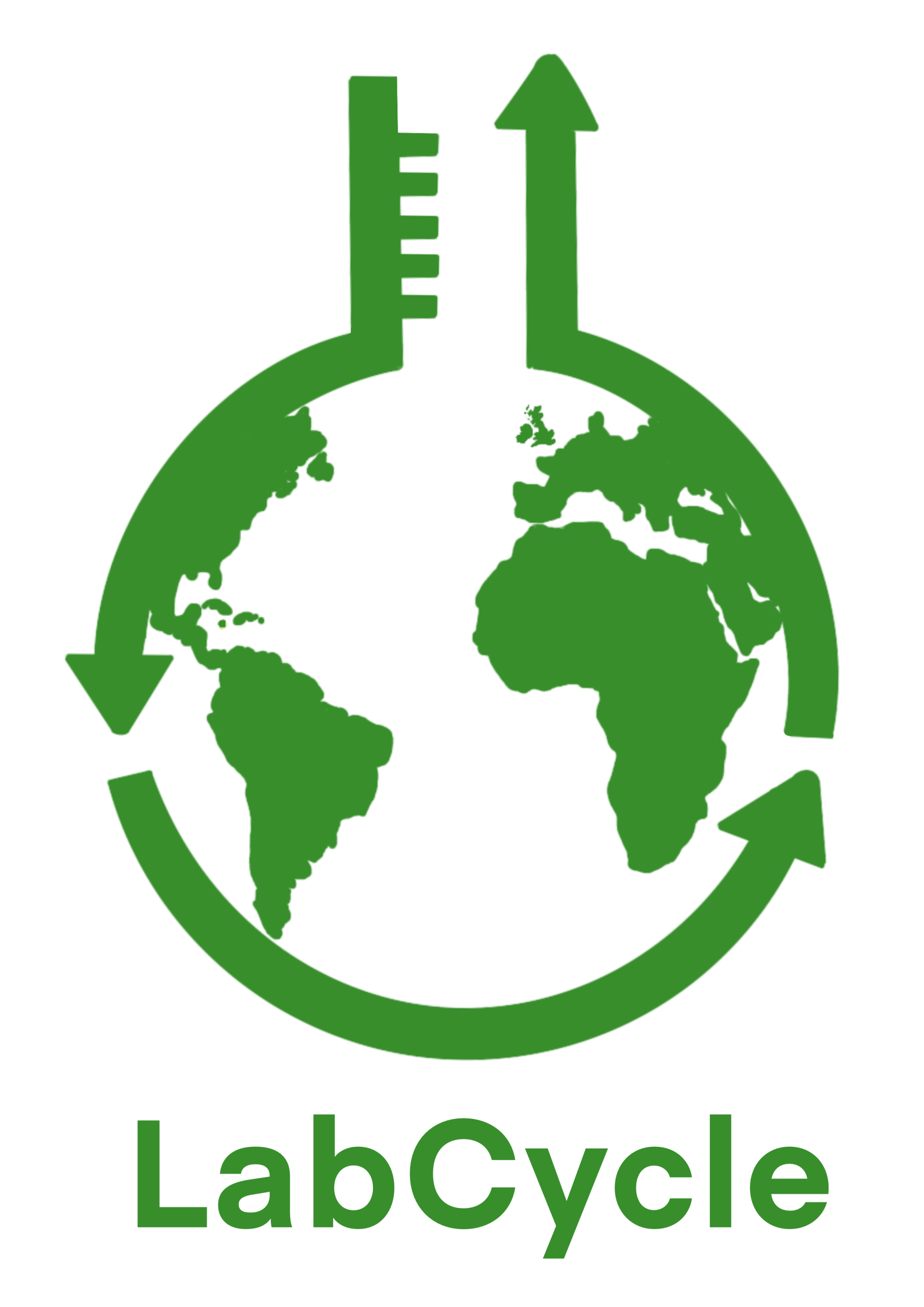Innovation
A world-first circular plastic consumables supply chain for research and healthcare systems
Name and role of Lead
Helen Liang (CTO)
Clinical problem
The NHS is the first healthcare system to embed Net Zero, and it must reduce waste in surgery and critical care and decarbonise the supply chain. However, disposable plastics are ubiquitous in research and healthcare, delivering benefits including sterility, quality, safety and durability. For equipment such as syringes and test tubes this is vital. Despite the many benefits, the alarming amount of plastic waste has caused unintentional environmental consequences. Over 5.5 million tonnes of plastic waste are generated globally from the research sectors (Urbina, M.A., 2015), with over 150,000 tonnes from the UK (Alexis Percival, 2019),
Without a specialised recycling service, 99% of the clinical and laboratory plastic waste is currently sent to landfills or incinerated. On the other hand, less than 1% of lab-grade consumables on the market are made from recycled materials due to a lack of lab-grade recycled polymers. This linear economy has imposed environmental burdens, and the value of these exceptionally high-grade plastics is unretained within the supply chain.

The Innovation
LabCycle has developed an innovative solution that enables a circular economy model for clinical and research plastic waste. The system allows single-use plastics, such as syringes and specimen pots, to be decontaminated and recycled into high-quality lab consumables, including test tubes and petri dishes. At the heart of the innovation is AutoDecon, LabCycle’s patented automated decontamination technology (AutoDecon), which ensures safe and efficient decontamination of plastics. Recycled products meet safety and sterility standards following rigorous testing.
The innovation has been successfully piloted at NHS Blood and Transplant, Ashford and St Peter’s Hospital and Somerset NHS Foundation Trust. It integrates seamlessly into clinical workflows, requiring minimal additional staffing or disruption. Over 70 NHS staff have been trained to use the sorting system, with less than 1% error rate in waste segregation.
The recycling service and the recycled products can be offered separately or as a bundled subscription model. If offered separately, the service benchmarks incineration cost, and the product is priced at market average. The bundle offer will reduce waste management cost by up to 20% compared to incineration.
While the innovation does not directly target patients, it indirectly benefits the entire NHS patient population by supporting sustainable, lower-emission healthcare. It is particularly relevant in clinical and research environments with high plastic usage, such as ICUs, pathology labs, R&D units, testing and manufacturing facilities.

Impact
The innovation has gained commercial traction from both public and private sectors. The company has a pipeline of over 150 organisations on the pilot waiting list and is scaling its operations accordingly. LabCycle was awarded the NHS England Waste Management Award (2024).
LabCycle’s recycling solution significantly reduces carbon emissions by diverting single-use clinical and research plastics from incineration. Carbon emissions are reduced by approximately 90% compared to incineration. Pilot projects across NHS sites have yielded the following verified savings:
-
Somerset NHS Histology: 563 kg CO₂ saved in 9 months, estimated 1929 kg CO₂ saving annually.
-
St Peter’s ITU: 205 kg CO₂ saved in 6 months, estimated 1230 kg CO₂ saving annually.
-
NHS Blood and Transplant Bristol: 638 kg CO₂ saved in 4 months
Beyond carbon savings, the innovation enhances workforce morale—healthcare professionals feel empowered by contributing to environmental sustainability. Patient and Public Involvement surveys confirm strong support for greener healthcare, with 90% of the public backing recycling schemes.
Following polymer characterisation, test tubes, dosage cups and petri dishes have been made from 100% recycled plastics. The products were tested by third party to ensure they meet requirements of sterility, endotoxin and extractables. Lab testing data show the performance of the recycled products is similar to virgin plastic counterparts.
Next Steps
LabCycle’s innovation has substantial medium-to-long-term development potential, both in terms of product expansion and geographical scale. In the UK alone, research and health care sectors produce over 150,000 tonnes of plastic waste annually, and LabCycle estimates at least 40% of this is recyclable through its system.
In the next 5-10 years, LabCycle aims to deploy multiple AutoDecon units in regional hubs nationally, returning 60,000 tonnes of high-grade recycled plastic back into circulation—equivalent to over 6 to 8 billion units of consumables. These products can be scaled and diversified to serve broader segments within healthcare, pharma, and academia.
The model is inherently adaptable, and discussions are underway for international expansion, particularly in Europe and the U.S., where similar plastic waste challenges exist.
In parallel, a carbon reduction and LCA framework is in working progress, strengthening the case for NHS procurement and future green certifications (e.g., B Corp).
Ultimately, LabCycle seeks to become the default partner for plastic circularity in healthcare and research, revolutionising sustainability standards sector-wide.
Date Published
June 2025

